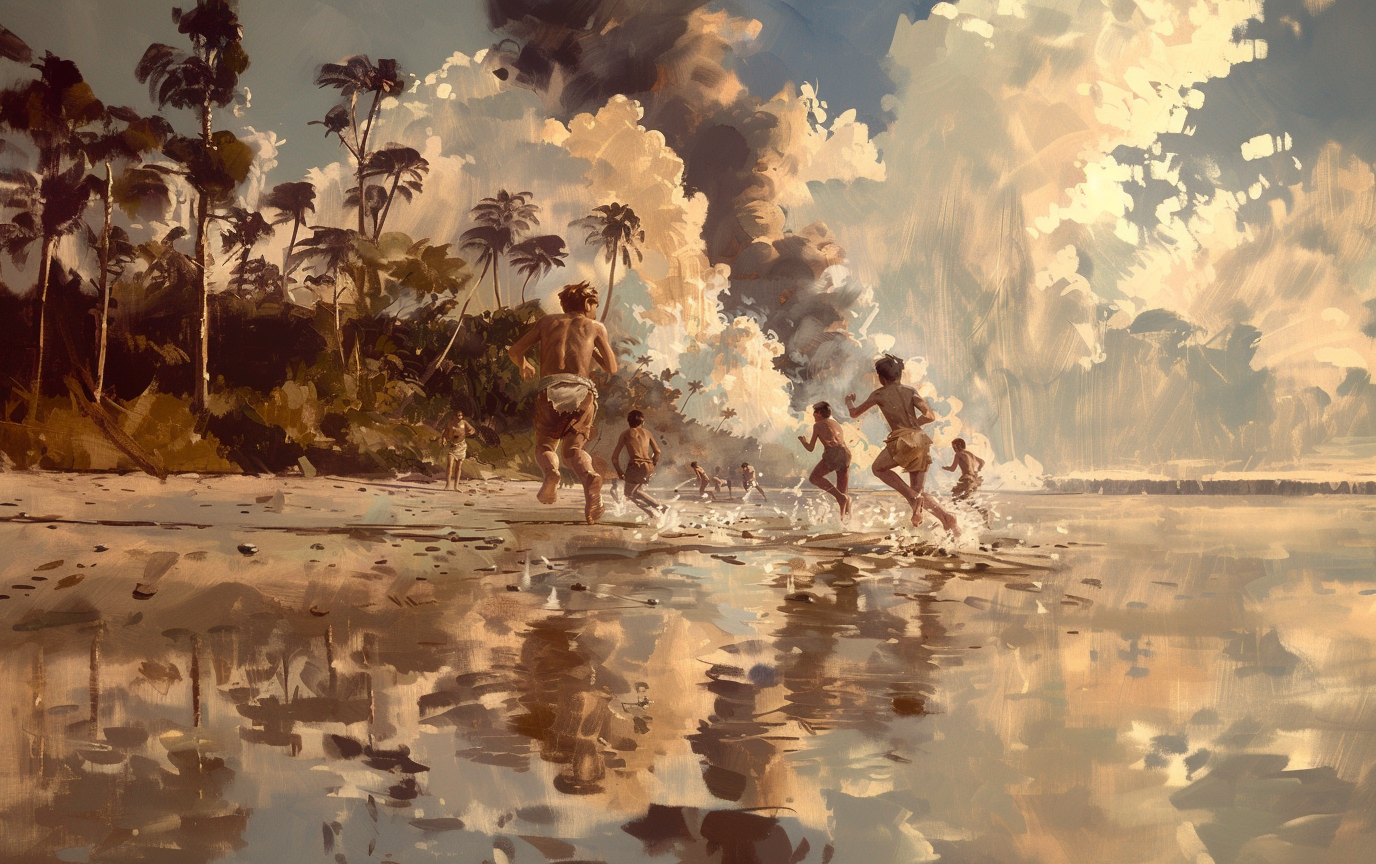May 2021
PatterNS IN HERD BEHAVIOR
I
Growing up, I just wanted to fit in. I played sports, listened to music, and watched MTV. As a teenager in a small town, I just wanted to be normal. Middle school was like the Serengeti. Full of lions waiting to pick off the weak.
In college, I was forced to pick a major. All the guys chose finance, so I chose it too. At the time, it felt inconsequential. Years later, I’d learn a valuable lesson.
I landed a role at a great investment firm. For five years, I climbed the ranks. For a brief moment in time, I thought I’d made it. But I grew tired of spreadsheets. I couldn’t see myself in finance forever. So I quit to reinvent myself. And started back at square one.
For a few years, I career-hopped. From WeWork to Amazon, then early-stage startups. I met really great people and worked on really cool things. But in the end, nothing felt right.
So, I took a step back. For over a year, I reflected. I’m not the same person I was in middle school. Twenty years later, it was time to discover myself.
II
Richard Dawkins, a renowned evolutionary biologist, introduced the concept of "memetics" in his 1976 book, "The Selfish Gene." The idea proposes that cultural information can evolve just like biological genes. Nearly 50 years later, it has become a fascinating and controversial topic.
At its core, memetics suggests that ideas can be viewed as self-replicating units of cultural information. They spread from person to person. Just as the reproduction of genes drives biological evolution, he argues that memes drive cultural change.
Critics argue that Dawkins’ theory oversimplifies the complexity of human beings. They point out that memes, unlike genes, do not have a clear mechanism for replication. Ideas spread due to many factors. Not just one.
III
In 2021, the GameStop short squeeze highlighted the power of memetics. r/WallStreetBets challenged the most formidable opponent: Wall Street institutions and traditional market norms.
At the heart of the saga was a classic David vs. Goliath story — a band of retail investors against powerful hedge funds. GameStop, a struggling brick-and-mortar retailer, had been heavily shorted by institutional investors. They believed that the company's stock price would continue to decline due to online retail.
r/WallStreetBets saw this an opportunity. They bought GameStop shares en masse, driving the stock price up. Forcing the short-sellers to cover their positions at a significant loss. The coordinated effort attracted widespread attention. A national conversation ignited.
The r/WallStreetBets community was an incubator for ideas. Shared language and inside jokes form a strong sense of identity. Members are willing to take huge financial risks in pursuit of a common goal.
IV
In the 1990s, the internet economy was born. Caught up in the excitement of the dot com era, attention surged towards Silicon Valley startups. Investment surged among internet-based companies. Most had little more than a domain name and a vague business plan.
At the heart of the dot-com era was a belief that traditional rules no longer applied. Any company with a ".com" could raise money. The internet was novel. The fear of missing out was strong.
Investors poured money into founders with little regard for cash flow metrics. Companies with no revenue were valued at billions of dollars. The media fueled the frenzy. Glowing coverage of the latest sensations predicated fortunes being made.
Retail investors also got caught up in the excitement. Many people quit their jobs to join startups. They invested their life savings in dot com stocks. “The internet will make you rich” was the prevailing belief. Families took extraordinary risks based on a dream.
The more people invested, the higher stock prices rose. This attracted even more investors. The feedback loop created a sense of invincibility. People believed the good times would never end.
But the boom was unsustainable. In March 2000, the bubble began to burst. Investors realized that many companies they had invested in had no real value. As stock prices plummeted, panic set in. The aftermath was devastating.
V
We can trace herd behavior back to the Roman Empire. The Romans were known for their love of spectacle. Gladiators fought in an open arena, where the roar of a crowd determined their fate. This mentality demonstrates how easily people can be influenced by others. When one person boos, the rest do.
In the Middle Ages, herd mentality played a significant role in spreading ideas. During the Spanish Inquisition, thousands were tortured, imprisoned, and executed for their religious beliefs. This led to religious conformity, even if privately people had doubts.
While following the herd might feel right, it’s not right for everyone. If you’re satisfied with an average life, then you can be like everyone else. If you’re dissatisfied with average, you’ll have to carve your own path. Take a break, look inward, and remember: there’s no rulebook for this game they call life.


